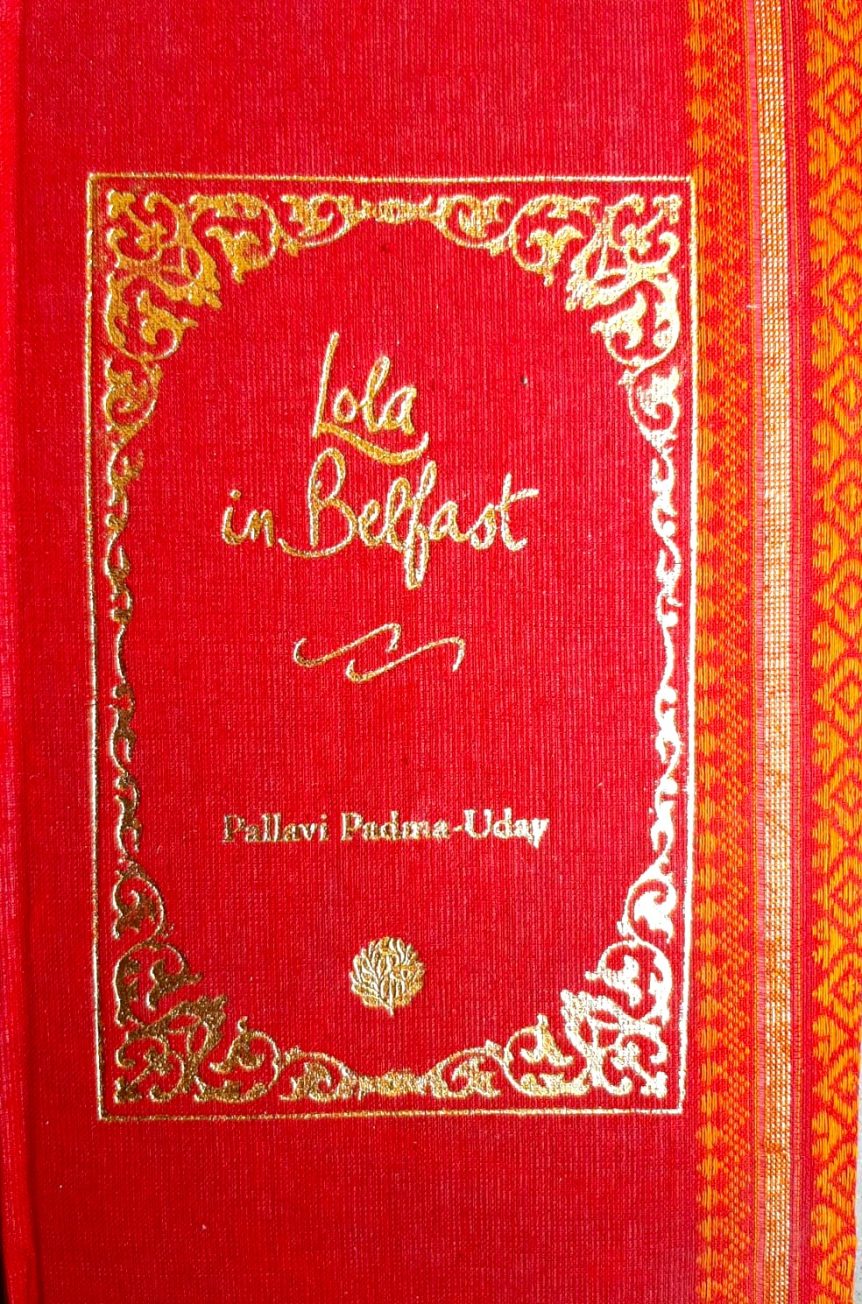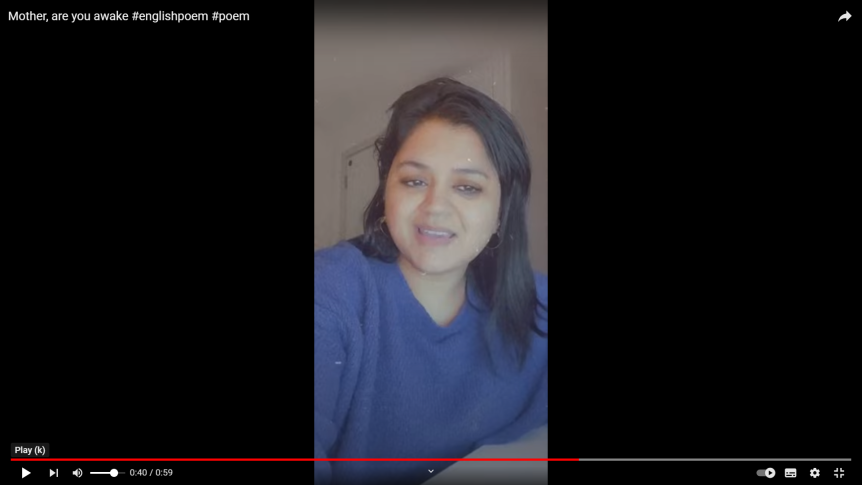What ideas are you looking at through your work?
When I wrote “Orisons in the Dark”, the collection came together as a combination of poems written and published in India when I was younger, and other poems that were added as I resumed writing poetry in Belfast, so the collection deals with a range of themes including love, adversity and identity.
When you are just beginning, you really don’t know what it is you want to concentrate on. You write instinctively. As you mature, you find out what you really care about, and in my case I found that I was really deeply angry about Sexism, Patriarchy and Gender Inequality. I would see a lot of sexism and patriarchy around me as I grew up in a patriarchal state in India (not that India as a whole is any less patriarchal). While I grew up in a feminist household, I saw my mother who was a Biology professor quit her job in order to raise her children. When I started writing, those ideas would continually confront me.
youtu.be/dx4AHaqaex8?si=ZICzFobYPEZkwjtS
I want my writing to commit to an examination of that situation, not just in my country back home, but also the world over. The fact that there is inequality everywhere triggers me. Women continue to be tied to gender roles and a deep realisation of that came to me when one of my mentors in England told me that things might be a little less severe in the West when compared to India but it “wasn’t a bed of roses either”. I attended the launch of an anthology in Belfast called “Washing Windows” where I learnt more about domestic violence and sexism in this part of the world.
With my writing, I try to look at the universality of women’s experiences, not only the differences that separate us but also the similarities where the Third World and the West converge.
You use a lot of layering in your work?
It has taken me several years to figure out exactly where I am situated, in the world, as a woman. When you are a child you are the centre of the universe to your parents; you are everything to them. My father was staunchly feminist, in fact my brother was treated relatively unfairly in our house, because girls were so favoured.
This stood in sharp contrast to the patriarchal society I grew up in. Within India, life for women (with the exception of those few in the metros and cities) is within the socially determined parameters of what is expected of a woman; mostly to raise children, tend to her family and be led by her husband. As an example, there are governing bodies which women are elected to, and while it appears they have the authority to lead, it is actually their husbands who exercise de facto power.

Many working women live by these norms, and many of them do not even realise how unequal and unfair they are. For instance, when I write about these, either in the context of India or elsewhere, many, especially in India, read my work and assume that I write only because it’s personal. And that is very difficult to deal with. I write because I have seen these closely, being privy to the experiences of women in other contexts, and how they were treated. This brings me back to my mother, who quit her work to raise us. Let me clarify: she did this despite my father not wanting her to do that. That can be seen as a good example of how strong the cultural expectations are and how women cave in even when ideal circumstances may be present for them to pursue their ambition.
That is where the layering comes in. In my poetry, when I do not want to say things too directly, I use metaphors, or narratives, to lay out the vital details of life conditions and choices that help me reveal the contradictions and constraints women face, and how unequal they continue to be in a world that makes tall demands of them.
To find more of Pallavi Padma-Uday’s work see the links below
en.wikipedia.org/wiki/Pallavi_Singh
Books are available at the link below
bookspaperscissors.co.uk/products/orisons-in-the-dark-pallavi-parma-uday
Belfast Book Festival 2024 – Event
belfastbookfestival.com/whats-on/motherhood-love–identity-pallavi-padmauday-and-catherine-dunne

